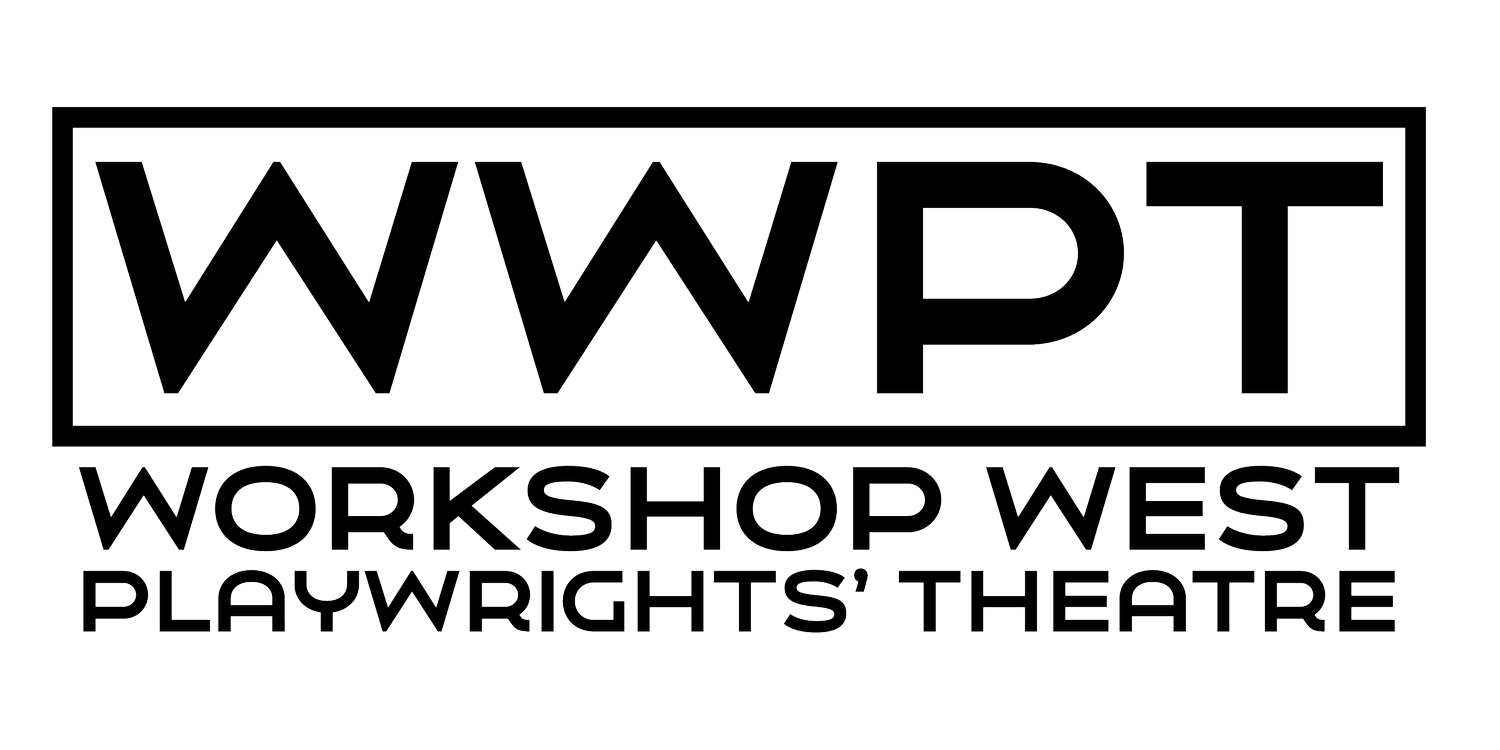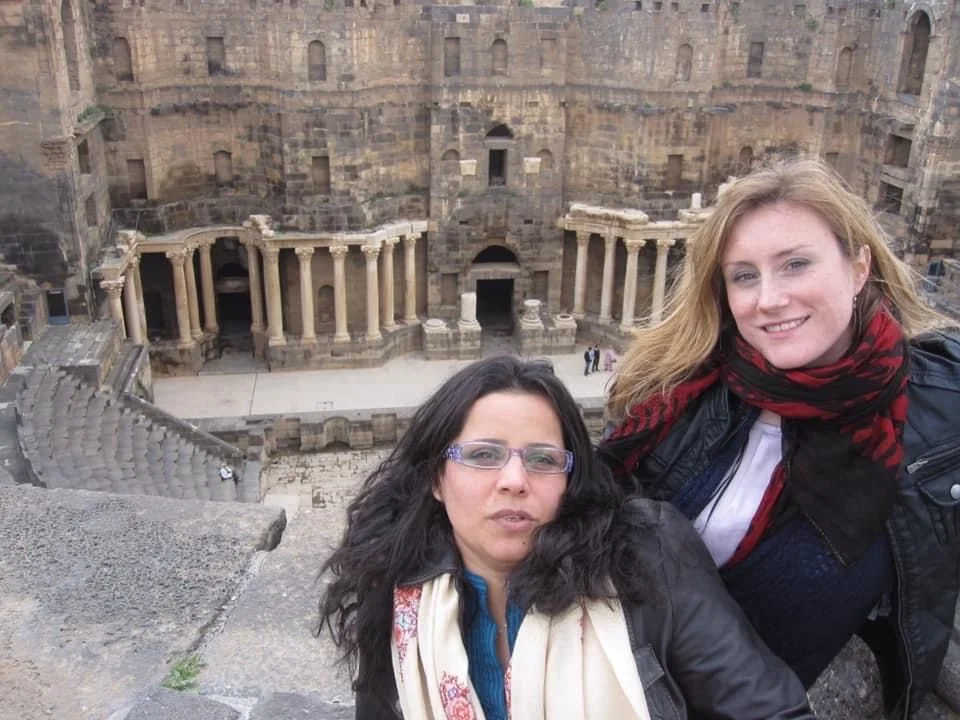WWPT GOES PWYW
WWPT goes entirely PWYW for our 46th season! You might ask, "Why take the risk?" and we're here to tell you!
From Page to Stage.
Spenser Kells, a participant in last season's Springboards Festival, reflects on their journey bringing Sheep Play to life at the 2024 Edmonton Fringe Theatre Festival and the importance of professional playwriting support.
Year End Reflections.
Workshop West’s 2023-24 season Borderlands – Encounters on Outskirts has been a year of heart-stopping theatre, buzzy openings, and luminescent performances. We’ve seen work by seasoned pros from across the country, new stars in the making, emerging artists just starting their journey, and Edmonton mainstays who we are fortunate live and work in our city.
Playwrights on their plays.
We’ve reached the end of another season here at Workshop West and we wanted to shine the spotlight back on our incredible playwrights of our Borderlands season. Below you’ll find an interview with Catherine-Anne Toupin and Chris Campbell about Mob, and playwrights notes from David Gagnon Walker (This is the Story of the Child Ruled by Fear), and Conni Massing (Dead Letter).
We hope you’ve enjoyed this season as much as we have.
WWPT's Indigenous Playwrights' Circle on Hidden Meanings.
In celebration of our upcoming world premiere of Dead Letter, the members of our Indigenous Playwrights Circle brought forth some ideas on "hidden meanings."
Josh Languedoc, Monica Gate, Olivia McCotter, and Maria Buffalo added to our small but mighty blog post for May and we are thrilled to share their wisdom and words.
Jim DeFelice on History
If there is anything you've ever wanted to know about Edmonton Theatre - Jim DeFelice is the person to ask.
This post is an article Jim wrote from the Fall 1985 edition of Canadian Theatre Review.
David Gagnon Walker on his Audience Interaction
In high school, I wanted to be a jazz musician and my best friend wanted to be an actor, and talk me into doing improv comedy with him. And that led to high school plays and all you know all those things and I guess by the age of 18, I really thought I'm going to be…I knew I loved the theater, and all I really knew of the theater was acting. So I thought, I'm going to be an actor. This is going to be great.
Heather Inglis on Dialogue
Why is it we can talk to some people for hours, while with others we run out of things to say in a matter of minutes? This question is at the heart of what makes theatre work as an art form. Whether monologue or dialogue, theatre is a conversation. Words emulating speech are spoken by actors in real-time and space in front of an audience. The conversation at its heart is both spoken and unspoken and has the drive and energy to be sustained over a duration of time. Audiences conspire with artists to solve the mystery of what is underneath the words that can’t be articulated with simple, straightforward language.
Katherine Koller on Script Salon and Its Influence
I remember Springboards at Workshop West in 1995 with my very first public reading ever, a short play called Beatty. The next year, two of my one-acts were in the festival and my director was Heather Inglis. The year after that, Heather directed (and encouraged) my first attempt at a full-length play. Of these four early plays, two were published. In 2008 I had two excerpted readings at Springboards. One of the plays was The Seed Savers, which premiered at Workshop West the following year.
Rebecca Merkley on Songwriting
I started writing music at the age of 6 on this tiny electric piano my dad bought for my brother. I sat at that thing for hours and pounded out little melodies. It was all instinct. The first song I ever wrote is written in crayon. It’s adorable and if you ask nicely, I will sing it for you. I always understood how to piece together a song, it was always just there. I can’t really explain it.
Amena Shehab's and Joanna Blundell's Collaboration Across the World
No Woman’s Land comes from the friendship between two women who met while living in the Middle East while working for Al Jazeera, the Arab world’s major media network.
Amanda Samuelson on the Ingredients for a Play
A bake-off is “a quickly written exercise on an assigned theme with assigned elements” (or ingredients) that is usually done within a small period of time. The bake-off was created by playwright Paula Vogel, and it’s how I first started writing plays.
Trevor Schmidt on Historical Research, and Ladies' Bare-Knuckle Boxing in Victorian London
I don’t remember what got me interested in the subject matter for this new work, but I tend to do deep dives on Google looking for inspiration and I came across a single, slight reference to ladies’ bare-knuckle boxing in Victorian London - which in turn led me to the little bit I could turn up on Liz Stokes, the undisputed Queen Of The Ring in a ladies’ underground Fight Club over a century earlier.
Liam Salmon on Torturing Myself with Structure
I get bored incredibly easily. So, if I ever feel like I’m treading too close to something I’ve already written chances are I’ll lose interest. One way I try to keep my plays fresh is by investigating different kinds of structures or ways of telling a story. You know, to challenge myself, keep myself on my toes, or just to make the whole process a lot harder than it needs to be.
Cat Walsh on Writing Horror for the Stage
When I was five, my father let me watch The Creature From The Black Lagoon. It was the middle of the afternoon, and not a particularly scary movie, so I imagine he thought “How traumatized could she be?” As I’m told the young people say: hold my beer. For weeks after watching it, I’d be curled up in bed, my eyes squeezed shut, imagining what I’d see if I opened them— a pair of scaly legs standing right next to my bed, dramatically side-lit by my nightlight. And although I could never bring myself to do it, I knew what I’d see if I looked up: the hideous fishy face of The Creature, ready to attack me as I went scuba diving, or drag me out of my boat, or inflict any number of watery deaths. I was legitimately scared of this happening… but I kind of liked to imagine it all the same. I kept playing it back: the legs, the realization of what I’d see if I dared to look up, the terror of it coming true this time. I was scaring myself, but it was also kind of thrilling.
On Josh Languedoc's Play "IN-COR-RI-GI-BLE: The Legend of Thundervoice", Generational Trauma, and the 60's Scoop
My name is Josh Languedoc. I am a second generation survivor of the 60’s Scoop. My father, David Languedoc, is a first generation survivor of the 60’s Scoop. My father’s father is extremely likely to be a survivor of Residential Schools. Can I say this for sure? No. Is there any way I’ll ever know this? No. With destroyed records and a broken paper trail, the full story of my father’s side of the family will forever be a mystery.
Leslea Kroll on Compassion Fatigue and Her Play, 'The Light Fishers'
Sometimes retracing the early stages of a creative project can be foggy business…not quite knowing what the first sparks were or when they were ignited. For my play The Light Fishers, I recall the moment of initial inspiration vividly.
Historical Resonance in Playwriting Process
Earlier this week I sat down with Playwright in Residence, Patricia Dabarsie and chatted about some of the things she’s working on. We talked about a lot of things – from the historical research going into her piece, as well about some of the resonances looking back has on the present moment.
Pat began saying that the work is “a play that I started a long time ago. It’s a black historical play. When I was writing RIBBON (which was my one woman show) I came across, in the archives, these columns called ‘Our Negro Citizens.’ And I thought – who’s writing these?”
Unexpected Inspiration
Over the course of last season, I had the pleasure of hosting a group of playwrights (over zoom) every Sunday afternoon from September until May for The Playwrights’ Circle, a program supported by Workshop West Playwrights’ Theatre and The University of Alberta’s Drama Department. I cannot take credit for the program’s inception as The Playwrights’ Circle was begun in 2014 by another playwright, Colleen Murphy, during her time at the University as the Lee Playwright-In-Residence and continued by playwright Meg Braem during her residency in 2017. I followed in Colleen and Meg’s footsteps and I am very glad to have had the opportunity to continue the Circle. The goal of The Playwrights’ Circle was to serve the needs and interests of Edmonton writers as they created and developed their new plays.
Workshopping Plays Online in a Pandemic
For just over a year, I’ve had the pleasure of working with Heather Inglis and Workshop West, Playwrights’ Theatre in workshopping and developing a new work of mine. Given our current reality, this means we’ve done a lot of work online; a lot of workshops over ‘zoom’ or meetings over google hangouts or equivalent. I’ll be honest, I had no idea what zoom was over a year ago. Now it’s become a sort of standard for official meetings. All this has left me wondering: What happened to you skype? How did you drop the ball so hard…?
But for real, the state of live theatre during these COVID times has been a whole thing. The whole concept of ‘live’ or ‘in-person’ has been just south of impossible for more than a year. And it means the whole process of ‘developing’ or ‘workshopping’ a new work feels radically different. For starters there are some benefits: I’m at home, and oftentimes I may be wearing a nice shirt but I’m always in sweatpants. But it brings a lot of challenges as well.


















